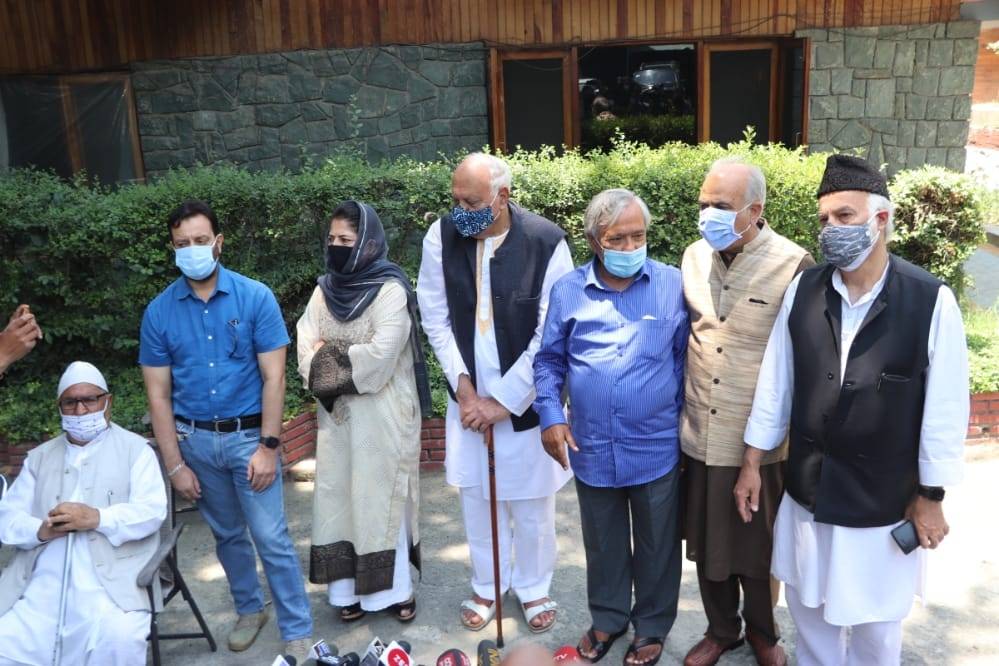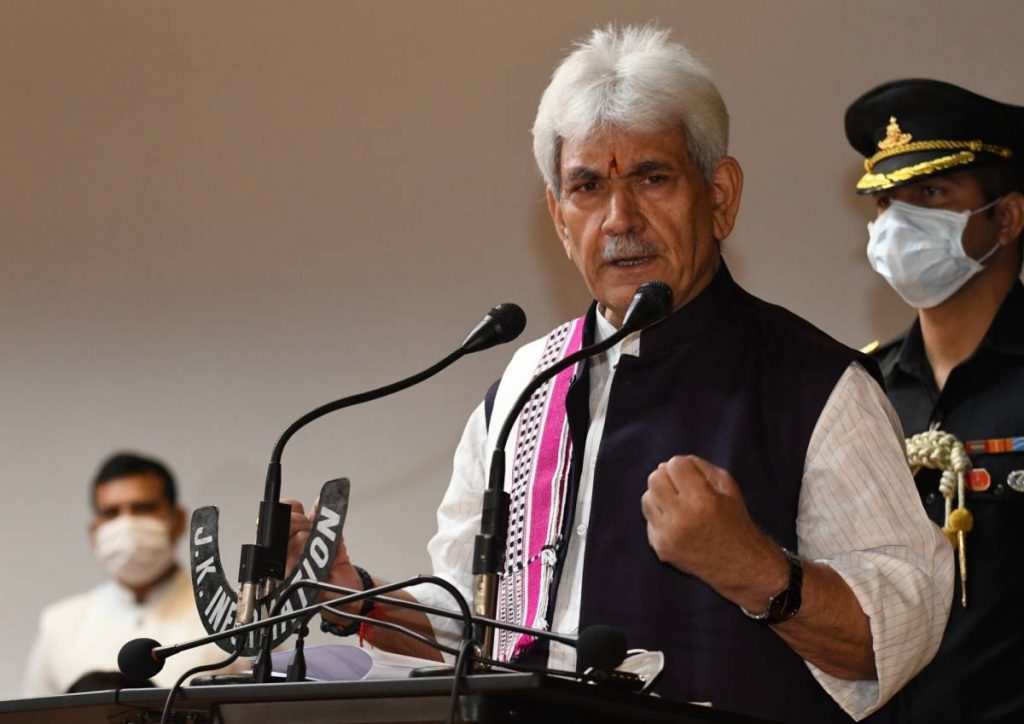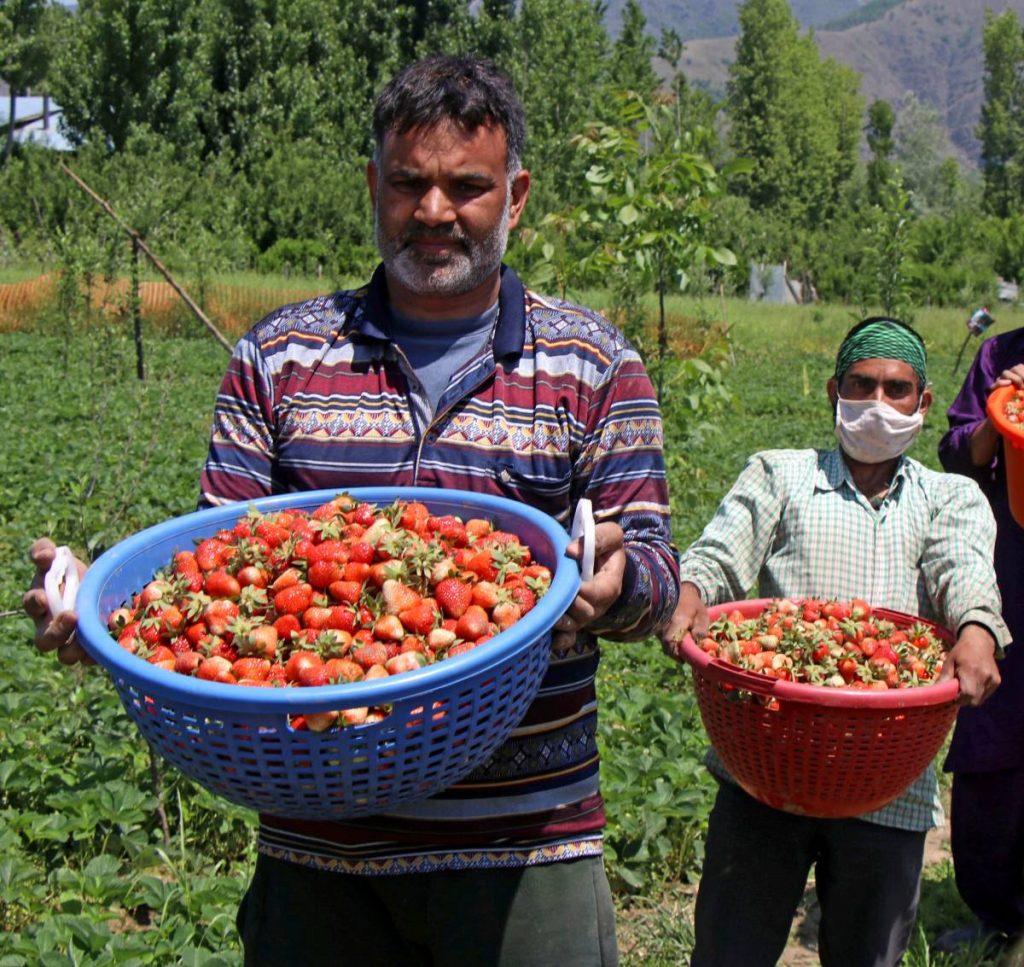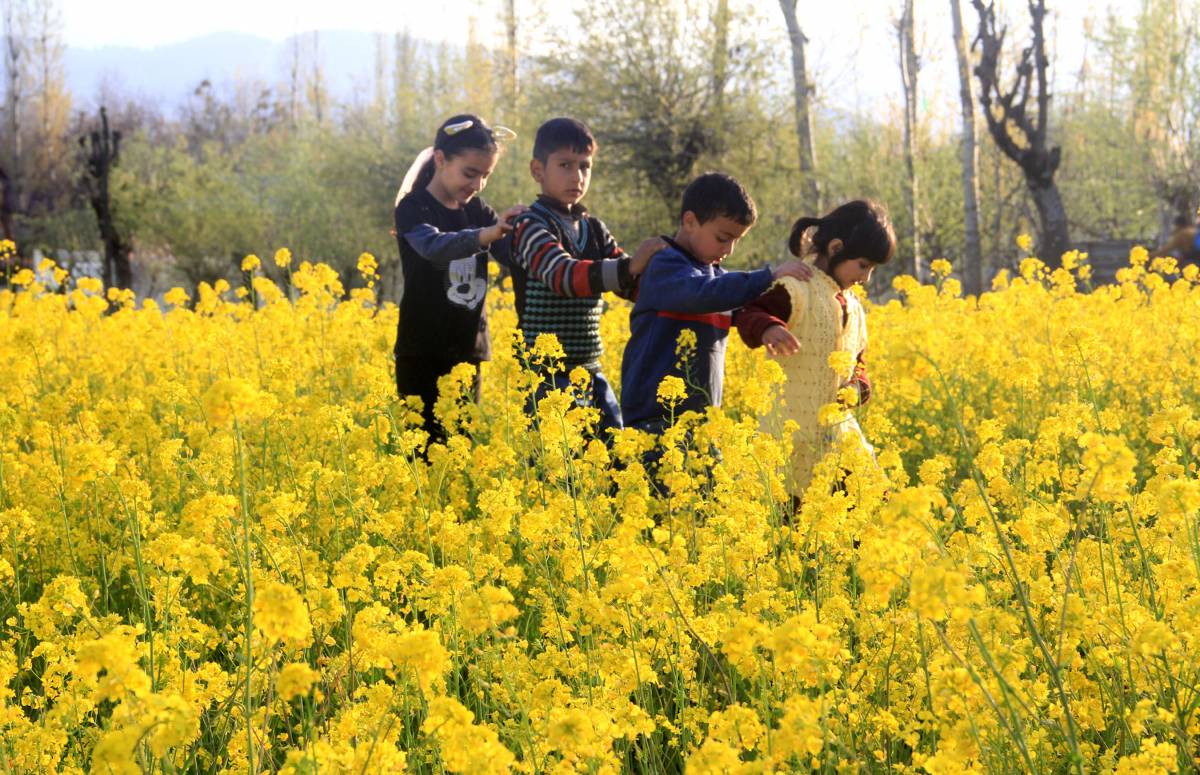Top 14 leaders from Jammu and Kashmir, including Farooq Abdullah, Mehbooba Mufti, Sajad Lone and others, will meet Prime Minister Narendra Modi for the first time after August 5, 2019, when the Centre had announced its decision to abrogate J&K’s special status and bifurcated it into two Union Territories. The meeting will be a golden chance for J&K leaders, Centre to serve the communities in the region
The People’s Alliance for Gupkar Declaration (PAGD) — a conglomerate of Kashmir-based parties comprising National Conference (NC), Peoples Democratic Party (PDP) and a few other smaller parties — after a flip-flop has decided to attend the all-party meeting to be chaired by Prime Minister Narendra Modi in New Delhi on Thursday.

Top 14 leaders from Jammu and Kashmir, including Farooq Abdullah, Mehbooba Mufti, Sajad Lone and others, will meet the Prime Minister for the first time after August 5, 2019, when the Centre had announced its decision to abrogate J&K’s special status and bifurcated it into two Union Territories.
During the past two years, many things have changed in the erstwhile strife torn state. People-friendly decisions have put the newly craved out Union Territory on the path of peace, prosperity and development.
Kashmiri leaders have to keep their minds and hearts open as Modi has shown magnanimity by extending an invitation to them. The Prime Minister has indicated that he wants traditional politicians of Kashmir to become a part of ‘Naya Jammu and Kashmir’ and play a constructive role.
The statements that have emanated from different quarters in New Delhi indicate that Modi is ready to walk an extra mile, but there doesn’t seem to be any possibility of rolling back the decision to abrogate Article 370, a temporary provision of the Constitution scrapped two years ago, or hold talks with Pakistan.
The tone for the meeting has already been set and the Kashmiri leaders, especially former J&K Chief Minister and PDP chief Mehbooba Mufti, needs to understand that the clock cannot be reversed and there is no point in raking up such issues that have lost significance.
Soon after the PAGD announced its decision to attend the all-party meeting called by the Prime Minister, the PDP chief demanded that Modi should talk to Pakistan also.

“If they can go to Doha and talk to the Taliban, they should have a dialogue with us and with Pakistan too in order to bring about a resolution,” Mehbooba told reporters in Srinagar.
The former J&K Chief Minister needs to realise that the Kashmir problem was settled once and for all on August 5, 2019, by merging J&K completely with the Union of India, and Pakistan is no stakeholder.
If she doesn’t watch her words, they can project her in bad light and will prove her critics right, who leave no opportunity to claim that she is ‘anti-national’, ‘anti-Kashmir’, and has got ‘separatist leanings’.
Last week, Union Home Minister Amit Shah had chaired a high-level meeting in the national capital and reviewed various development projects being implemented in Jammu and Kashmir.
He said that the all-round development and welfare of the people of the UT is the top priority of the Narendra Modi-led government. Shah made it clear that there would be no compromise on “development with transparency” as enunciated by the Prime Minister.
The Home Minister directed the officials to expedite the completion of the PM development package, and the flagship and iconic projects, including industrial development projects.
Shah also directed the J&K administration to ensure that all farmers are provided the benefits of the schemes such as Pradhan Mantri Kisan Yojana, under which Rs 6,000 is deposited annually directly into the accounts of the farmers, and the Kisan Credit Card Yojna, aming others.
He said that it should be ensured that the benefits of the industrial policy reach the small-scale industries.
The Home Minister also spoke in detail about the efforts being put in to provide employment to the youth and the institutional reforms like geo-tagging of all development works that are put in public domain, purchasing through the Government e-Marketplace (GeM) model and direct deposit of money into the bank accounts of almost hundred per cent beneficiaries of Gram Swaraj, social security and other individual beneficiary schemes.
He appreciated the 90 per cent reach of various Central government schemes in J&K and complimented Lieutenant Governor Manoj Sinha and his team for covering 76 per cent of the population under the Covid-19 vaccination drive.

It’s crystal clear that the Centre has a clear agenda, which revolves around development. There is no place for rhetoric and unnecessary discussions.
J&K’s transition into a Union Territory has proved to be a blessing in disguise for the common man. The system has been overhauled and the things are moving at a very fast pace.
MAJOR MILESTONE PROJECTS
Just one month after the abrogation of Article 370, Union Power Minister R.K. Singh and then Governor of J&K Satya Pal Malik had jointly inaugurated 15 power projects and laid the foundation stones for 20 others worth Rs 10,000 crore in September 2019.
The world’s highest railway bridge over Chenab river, which is expected to connect Kashmir with the rest of the country by train for the first time, is likely to be completed by 2022.
The government has announced that it would refurbish 11 airports — including two along the India-China border — while the military airports along India-Pakistan border like in Poonch, Rajouri and Gurez would also be expanded and opened up for civilian use.
For developing the information and technology sector in J&K, many sops have been introduced like providing “subsidy on rent” to the outside investors, among others.
The policy document of the government envisages two IT parks — one each in Srinagar and Jammu — spread over a 5 lakh square feet area.
According to Union Minister of State for HRD, Communications and Electronics & Information Technology, Sanjay Dhotre, the Centre after August 5, 2019 expedited the process of opening of IIT, IIM and AIIMs in J&K and allowing development of highways, power generation and irrigation projects.
The projects that were lying dormant for last several decades are also being revived in a speedy manner.
Dhotre had stated that the various developmental schemes include acceleration of the projects being executed under the Prime Minister Development Package (PMDP); to execute effective implementation of various schemes targeting the individual beneficiaries; to restart the long-pending projects by removing the obstacles that have been holding such projects; and to ensure effective administration with transparency.
Nearly one year after the abrogation of Article 370, in July 2020, Defence Minister Rajnath Singh had inaugurated six bridges in the border areas of J&K.
Four bridges were constructed on the Akhnoor-Pallanwala road in Akhnoor, while two bridges were built on the Tarnah Nallah in Kathua district, at a total cost of Rs 43 crore. The dedication of the bridges to the people of J&K carried a bigger message that India will continue to develop key infrastructure in the border areas, notwithstanding the hostilities by any adversary.
“Our government is committed to promoting infrastructure in our borders and necessary resources will be provided for this. Our government has a keen interest in the development of Jammu and Kashmir,” Rajnath Singh had said.
When these bridges were being constructed, Prime Minister Modi was regularly monitoring the progress of these projects and adequate funds were being provided for their timely execution.
The work on Shahpur-Kandi electricity and irrigation project, which couldn’t commence for five decades, is going on. The Ujh project was fast-tracked, and the Metro rail is on its way to Srinagar and Jammu.
Recently, the National Highway Authority of India (NHAI) conducted a trial run of vehicular traffic through the newly constructed 8.5 km long Banihal-Qazigund road tunnel on the Srinagar-Jammu highway.
The work on the crucial tunnel, which cuts through the heart of the Pir Panjal mountain range, will reduce the travel distance between Jammu and Srinagar by 16 km on the strategic highway.
With the opening of this tunnel, commuters would get much-needed respite as it by-passes the Jawahar Tunnel, which remains closed for days due to heavy snowfall during winters.
New Delhi has dropped enough hints about J&K’s statehood being restored soon and the Assembly elections can be held in 2022, soon after the delimitation exercise in the Union Territory is completed.
The ball is in the court of the traditional politicians of the Valley now. They have to decide what they want, do they want to remain stranded in the past or want to move on.
If they become a part of Modi’s vision, they will be able to serve the people of J&K in a better way, but if they continue to talk about irrelevant issues, they may end up as fence sitters. Modi has provided them a golden opportunity to join the mainstream and help the people of J&K to prosper. Since the day Kashmiri leaders have received the invitation from New Delhi, they have been upbeat and look keen to attend the all-party meeting. If all goes well, a new beginning for them is on the cards and the ice is all set to melt.
READ MORE: Pak soldier arrested for fighting alongside Taliban
READ MORE: Jaishankar calls for permanent ceasefire in Afghanistan

